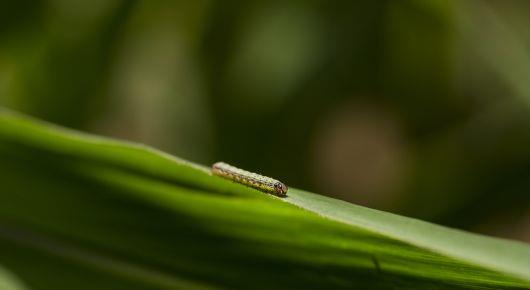Commission focuses on controlling plant health risks

Countries in Europe and Central Asia are highly diverse in climate, topography, ecology, and agriculture and as a result experience myriad external threats to plant health, known as heterogeneous phytosanitary systems. Pests damage crop production, forestry, and food security, which significantly impacts the international trade of plants and plant products. Since agriculture and the environment are very important for the economy, food security, and livelihoods, an FAO regional governing body is convening today to help countries control risks to plant health.
Hosted by the Government of Hungary, the forty-first session of the European Commission on Agriculture brings representatives of 33 countries together for two days to discuss plant health-related issues at national, regional, and global levels. The agenda will focus on the 2020 International Year of Plant Health, as well as how climate change, international trade (including internet trade), and human mobility are among the key factors that increase the risks of pests’ spread within and between countries and continents.
“To develop and enhance their phytosanitary system is among the priorities for a number of countries in the region,” noted Vladimir Rakhmanin, FAO Assistant Director-General and Regional Representative. “The good news is that countries are not alone in tackling plant health challenges. FAO has been actively supporting countries and will continue doing this both at the regional and global level. For this pursuit, the Organization cooperates with other partners, including international organizations, academia, and the civil society.”
It is anticipated that the Commission will adopt recommendations for member countries and FAO that can ensure better plant health, pest and disease control measures, and preparedness. These should promote prevention and enhanced adaptation, and the development of more resilient cropping systems, with new insights based on research.
“Current agricultural practices have to be revised,” stated Piotr Wlodarczyk, Secretary of the Commission. “Climate-smart pest management can be one of the cornerstones of sustainable crop production and protection and can serve to mitigate future threats to human and animal health posed by antimicrobial resistance in plant agriculture.”
Regarding intensified trade and human mobility as risk factors for introductions and movement of plant pests across borders, FAO promotes the update of existing risk assessment and surveillance methods. The latter can be improved by using pathway models and analysing the structure of global trade networks.
Besides crop related topics, the session will also report back on progress made on advancing gender equality in the region, and on providing support to rural women in income diversification.
On behalf of the host country, Minister of State Sándor Farkas highlighted Hungary’s support to detect and mitigate phytosanitary risks. “It is extremely important to keep producers and involved actors well informed about regulatory changes in the phytosanitary systems.”
1 October 2019, Budapest, Hungary
